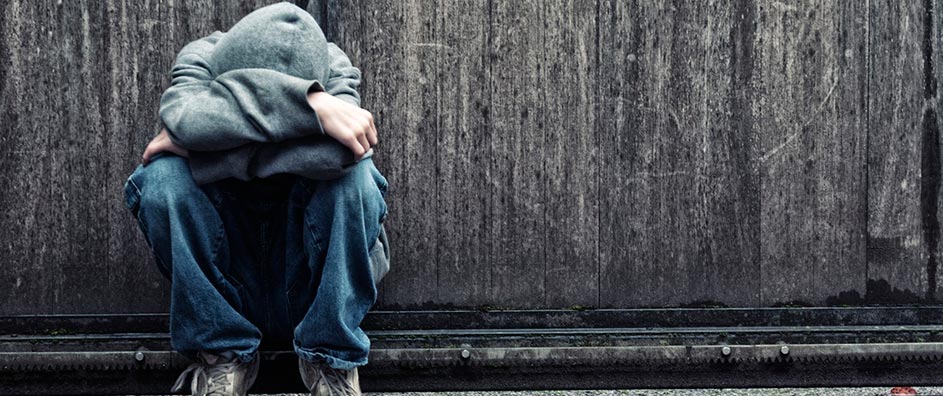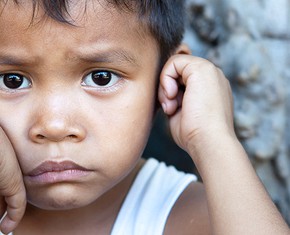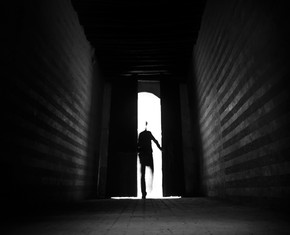The views expressed in our content reflect individual perspectives and do not represent the authoritative views of the Baha'i Faith.
While walking downtown the other evening, an impoverished, homeless gentleman held the door of a business open for my husband and me.
Touched by his courtesy, we smiled, greeted and thanked him; he beamed radiantly and expressed gratitude to us for our kindness. He told us no one had said “thank you” to him for a long time. As he talked, it became clear that what meant the most to him wasn’t money or shelter.
Despite these being significant needs for him, he most appreciated it when people talked to him kindly and treated him like a human being. What he so humbly said reminded me that generosity doesn’t always mean monetary or material donations—instead, it can also mean generosity of spirit.
In the following quote, Baha’u’llah, the founder of the Baha’i Faith, references the plight of the poor, and emphasizes the importance of generosity:
O children of dust! Tell the rich of the midnight sighing of the poor, lest heedlessness lead them into the path of destruction, and deprive them of the Tree of Wealth. To give and to be generous are attributes of Mine; well is it with him that adorneth himself with My virtues. – Baha’u’llah, The Hidden Words, p. 39.
Baha’is—including myself—continually strive to develop the attribute of generosity. Earthly riches, those superficial material things, like jewelry, clothes, and money, don’t truly matter; they aren’t what defines us. Today, the Baha’i teachings say, those earthly goods belong to us, and tomorrow they will belong to someone else. Our souls, our virtues, and our deeds constitute who we really are, and generosity is one of those very important virtues.
Another virtue Baha’is aim to develop is perseverance through challenges. The homeless gentleman I mentioned exhibited this virtue by continuing to hold the door open for people, and staying positive no matter what his plight. Baha’u’llah wrote:
They who are possessed of riches, however, must have the utmost regard for the poor, for great is the honor destined by God for those poor who are steadfast in patience. By My life! There is no honor, except what God may please to bestow, that can compare to this honor. Great is the blessedness awaiting the poor that endure patiently and conceal their sufferings, and well is it with the rich who bestow their riches on the needy and prefer them before themselves. – Gleanings from the Writings of Baha’u’llah, p. 229.
The writings of the Baha’i Faith also discuss the transitory quality of riches. In other words, just as it is with having good health or experiencing sickness, being young or growing old, wealth and poverty are not constants in this life. In The Hidden Words, Baha’u’llah said:
O son of my handmaid! Be not troubled in poverty nor confident in riches, for poverty is followed by riches, and riches are followed by poverty. Yet to be poor in all save God is a wondrous gift, belittle not the value thereof, for in the end it will make thee rich in God … – p. 40.
This quote seems to tell us that spirituality and detachment from worldly possessions, or being “poor in all save God,” gives us a “wonderful gift,” something we should all aim to achieve.
In other writings on this crucial topic, Baha’u’llah further elucidates that earthly riches can become a barrier to spirituality, emphasizing the importance of generosity and asking us to guard God’s trust, the poor, by considering and acting on the needs of others:
O ye that pride yourselves on mortal riches! Know ye in truth that wealth is a mighty barrier between the seeker and his desire, the lover and his beloved. The rich, but for a few, shall in no wise attain the court of His presence nor enter the city of content and resignation. Well is it then with him, who, being rich, is not hindered by his riches from the eternal kingdom, nor deprived by them of imperishable dominion. By the Most Great Name! The splendor of such a wealthy man shall illuminate the dwellers of heaven even as the sun enlightens the people of the earth! – Ibid., p. 41.
O ye rich ones on earth! The poor in your midst are My trust; guard ye My trust, and be not intent only on your own ease. – Ibid.
We can each play a part—no matter how small—in eliminating poverty and homelessness, serving humanity, being generous, and making the world a better place to live in. Let’s work together and take care of the poor in our midst.
















Comments
Sign in or create an account
Continue with Googleor